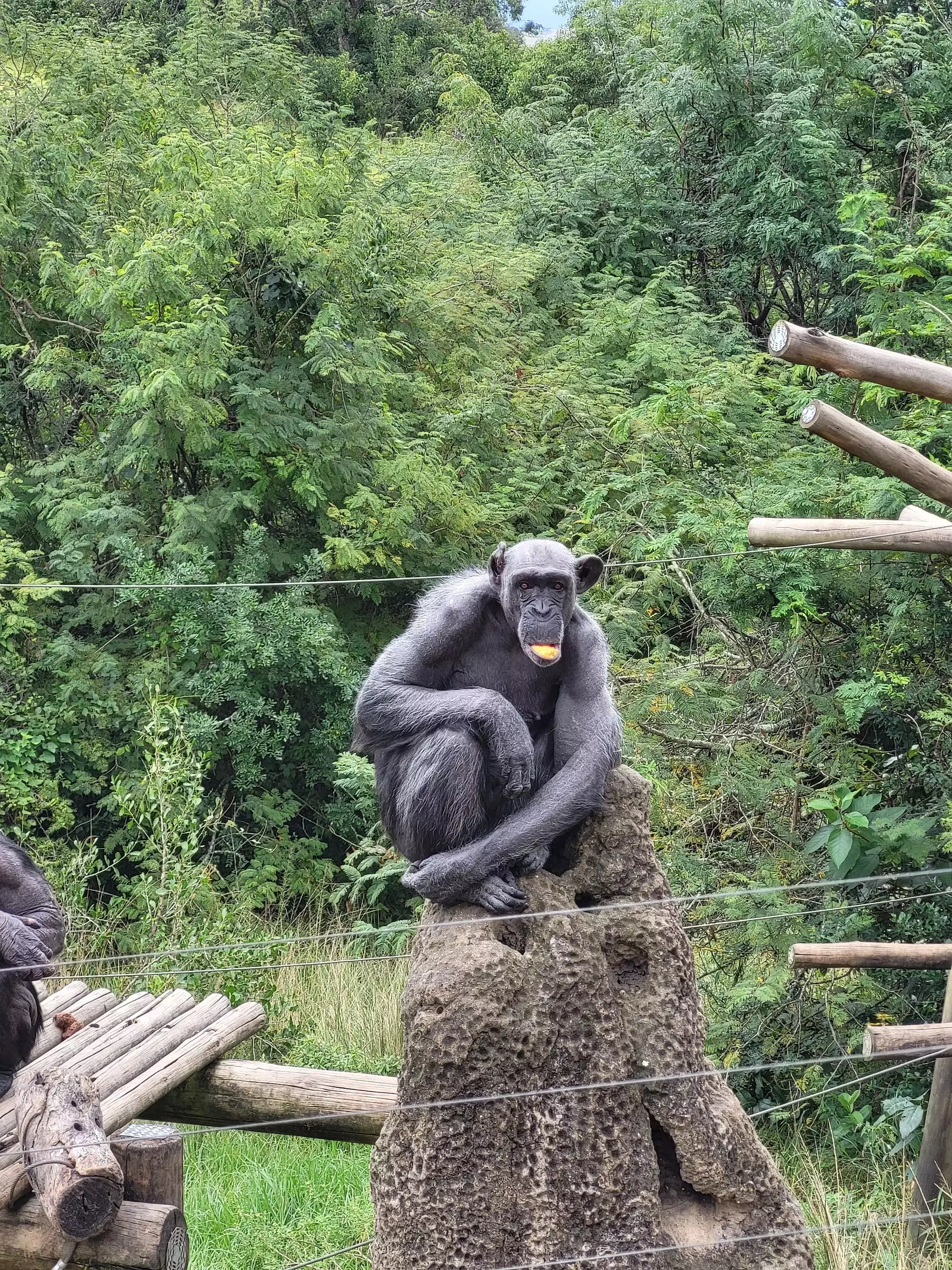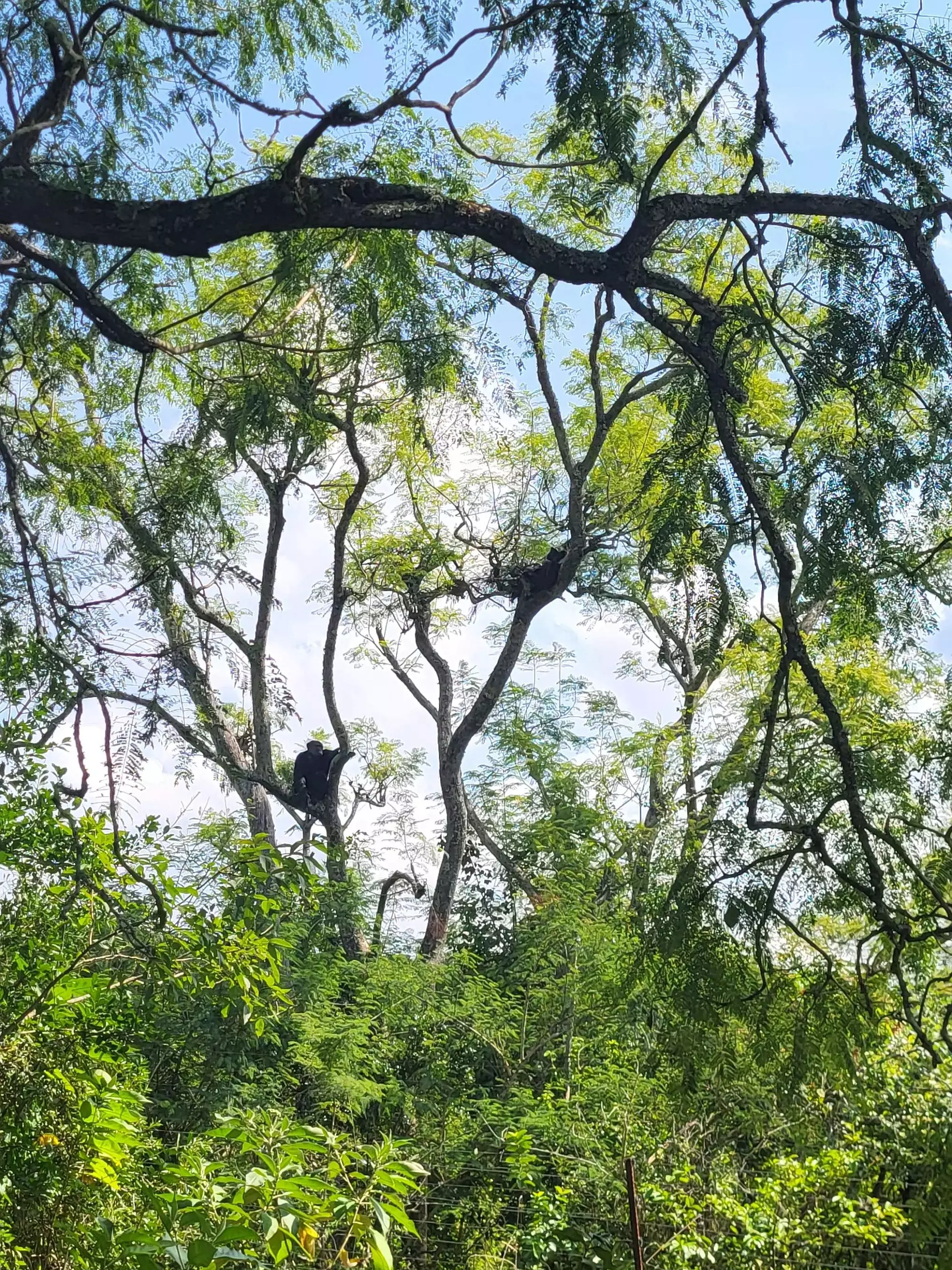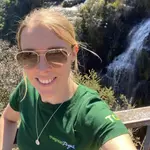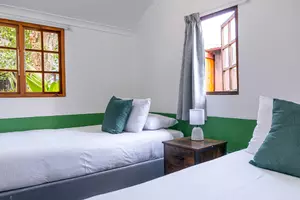

Chimp Eden - The Jane Goodall Institute
Introducing our BRAND-NEW project, Chimp Eden at The Jane Goodall Institute, offering you a chance to work with our closest living relatives, chimpanzees!
Speak To A Travel Expert
Activities
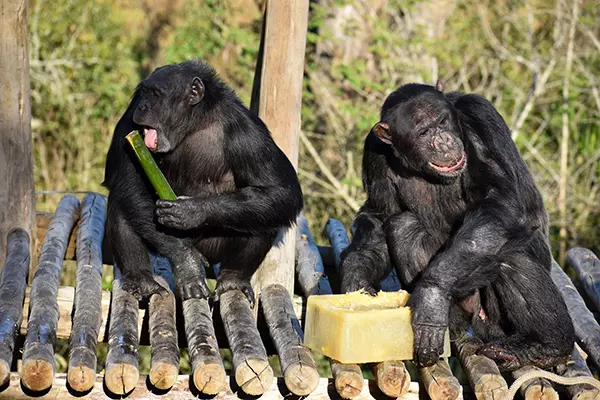
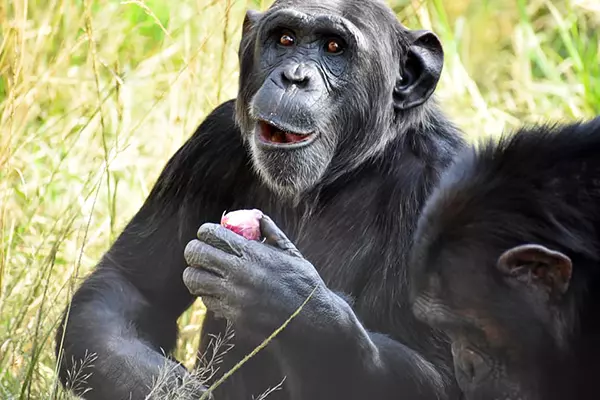
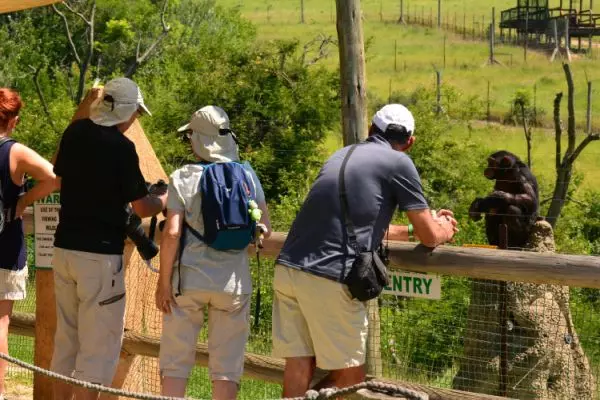
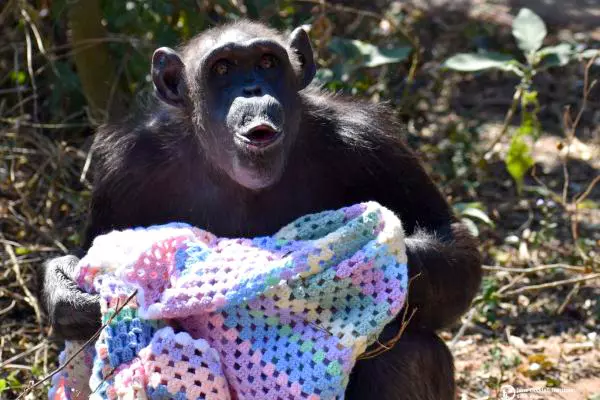
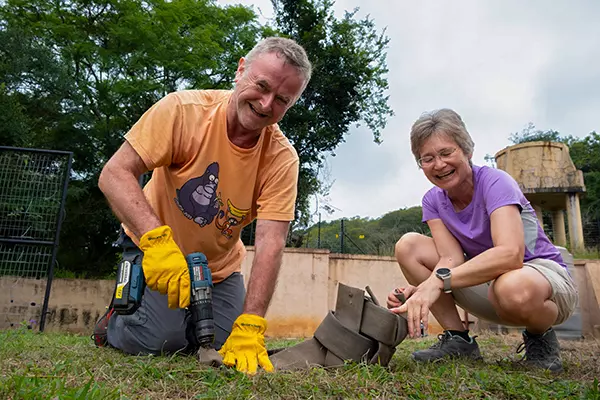
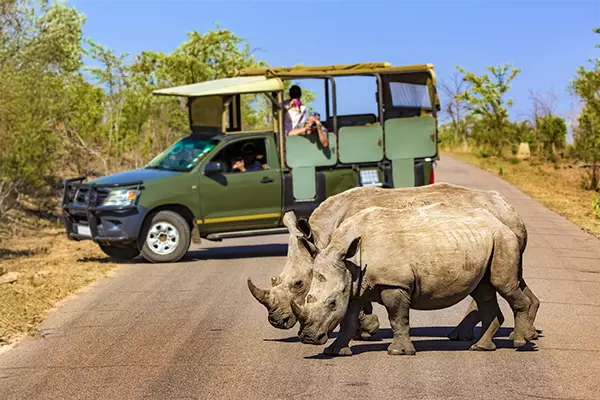
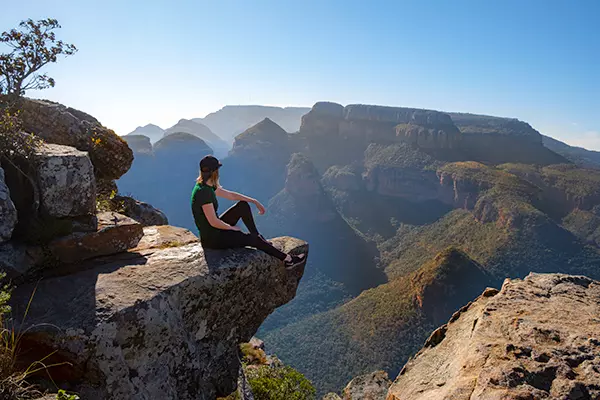
Itinerary
As one of our newest projects, we're currently in the process of making it a fan favourite, meaning the itinerary may be subject to change, and flexibility is appreciated. However, you can guarantee you'll make an immediate, positive impact on rescued chimps' lives!
Durations & Prices
Accommodation
Volunteer Accommodation
You will stay in the newly renovated volunteer village within the sanctuary. Rooms are offered on a twin-share same-sex basis (except for couples), or you can pay a single supplement of £100 per week to have your own room. Each room features a private ensuite bathroom with hot water and a Western-style toilet. The rooms are equipped with essential amenities, including plug sockets, a fan, fresh bed linen, and a towel, ensuring a comfortable stay. The volunteer village also has a cosy lounge area and a boma area with a fire pit for relaxing and socialising. Laundry facilities and Wi-Fi are also available free of charge.
Meals & Beverages
Three meals a day are included and eaten in a unique setting, as the dining area overlooks one of the chimpanzee enclosures! Dining with a view, you'll observe the chimps and watch them interact while you enjoy your meal. Lunch and dinner will be freshly prepared for you (dietary requirements can be catered for), while breakfast will include a selection of cereals, bread with spreads, yoghurt, and fresh fruit. You'll also have a chance to experience a traditional African Braai (BBQ) and visit local shops to pick up extra drinks and snacks, which you can store in the convenient kitchenette within the volunteer village.
Project Details
When is the best time to volunteer?
As this project is based at a sanctuary, the chimps are here year-round, so the only thing that may impact when you choose to volunteer is the weather:
November – February: This is the hottest time of year, with average temperatures reaching highs of around 33°C (91°F) and lows of roughly 19°C (66°F), but it is also the wettest time of year, although mostly with quick bursts of rain in the afternoons.
March – October: There is varying weather throughout this period, with March to May and September to October being perhaps the most comfortable times of year to volunteer, with daytime temperatures averaging around 29°C (84°F) before dropping to roughly 13°C (55°F) in the evening, and minimal rainfall during this period. June - August is considered winter and sees daytime temperatures range between 26-28°C (78-82°F) with lows of around 11°C (52°F). This is the driest time of year and is great for wildlife viewing and other excursions.
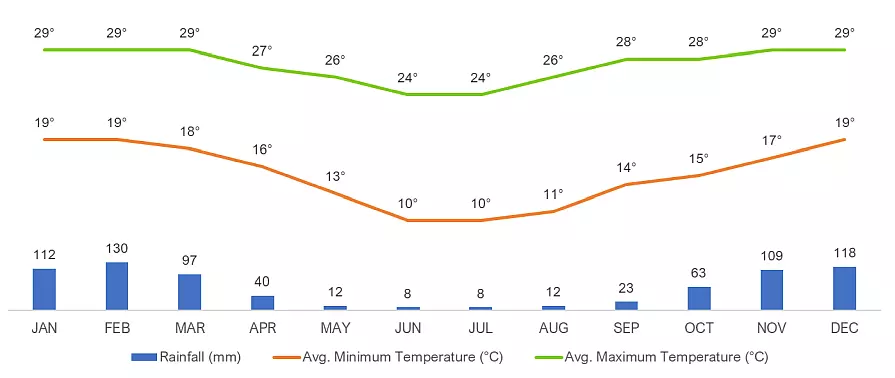
Getting There
You will need to book a flight arriving into Kruger Mpumalanga International Airport (MQP) on your project start date. You will then be met in the arrivals hall and take a private transfer to the sanctuary, which takes approximately 40 minutes.
Visa Requirements
Most countries, including the UK, USA, Canada, Australia, and the majority of EU nations, do not require a visa to enter South Africa and are granted entry for up to 90 days upon arrival. To be allowed entry, you must have a passport with at least 2 blank pages for the immigration officials to use, and it must be valid for at least 6 months from the date of entry into the country.
If you're unsure about your specific visa requirements, we recommend contacting the South African embassy in your home country at least two months before your trip. It's important to note that obtaining a visa, should one be required, is your own responsibility.
Fitness & Skills
No specific skills or prior experience are required, but the activities involve some construction and maintenance work; therefore, a moderate level of fitness is recommended. The most important thing is to arrive with a positive attitude and a willingness to work as a team.
Vaccinations & Medical Requirements
To volunteer on this project, you must provide negative test results to show you do not have Hepatitis B, Hepatitis C or HIV. (There is an at-home test that provides the results for all three in one test.) You must also either be vaccinated against Tuberculosis or have a negative test result showing you do not have it prior to arrival. These are ESSENTIAL, as without them, you will be unable to join the project, and all test results must be dated within 12 months of your start date.
No Contact Policy
We are often asked if volunteers will have the opportunity to touch or interact directly with the chimpanzees during this project. The answer is no, and there are important reasons behind this policy.
Chimpanzees share 98.8% of their DNA with humans, making them highly vulnerable to human-borne illnesses, many of which can be far more severe for chimps than for us. Protecting their health is a top priority. Additionally, frequent changes in personnel - due to volunteers rotating every two to four weeks - would create an unstable environment for the chimps, potentially causing stress and harming their well-being.
Finally, it’s important to remember that chimpanzees are incredibly strong, far surpassing the physical strength of an adult human. A no-contact policy ensures the chimps’ safety and your own. This approach prioritises their health, emotional stability, and the safety of everyone involved.
Videos
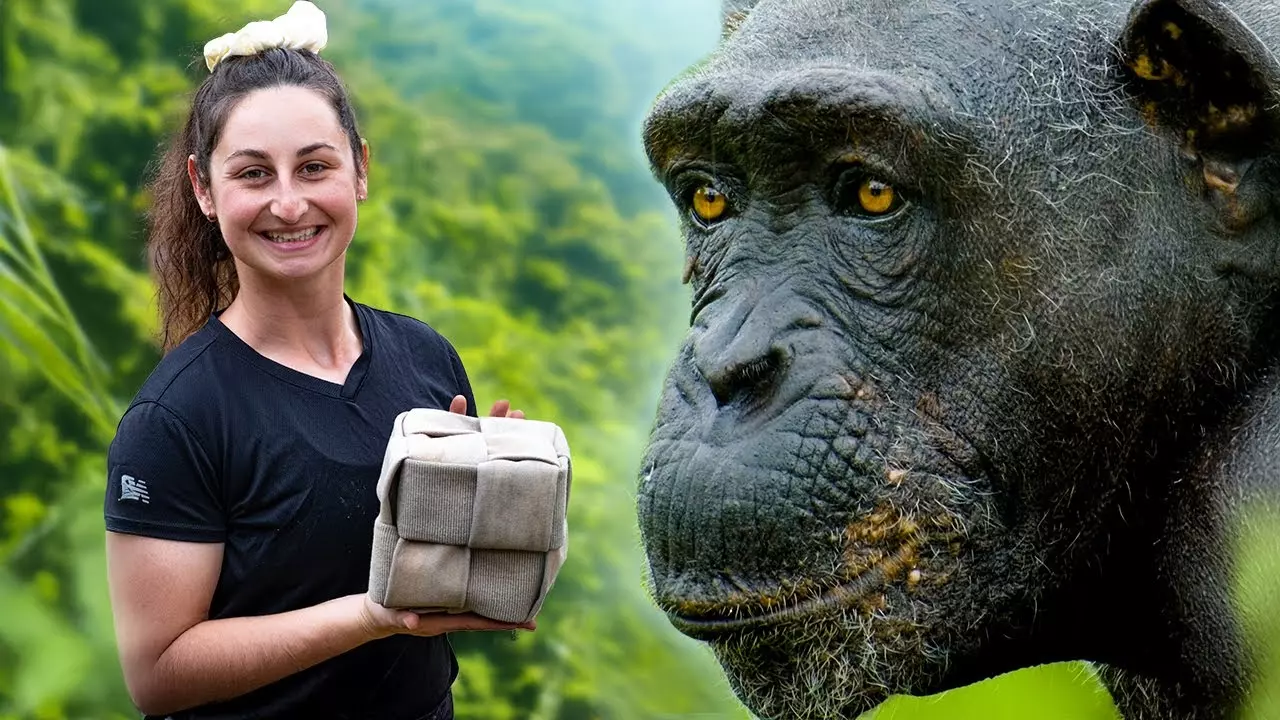
The Chimp Eden Experience
Discover how you can make a difference in a sanctuary of second chances! From daily feeding and enrichment activities to a game drive in Kruger National Park, the Chimp Eden experience is a whirlwind of wildlife, culture, and memory-making moments.
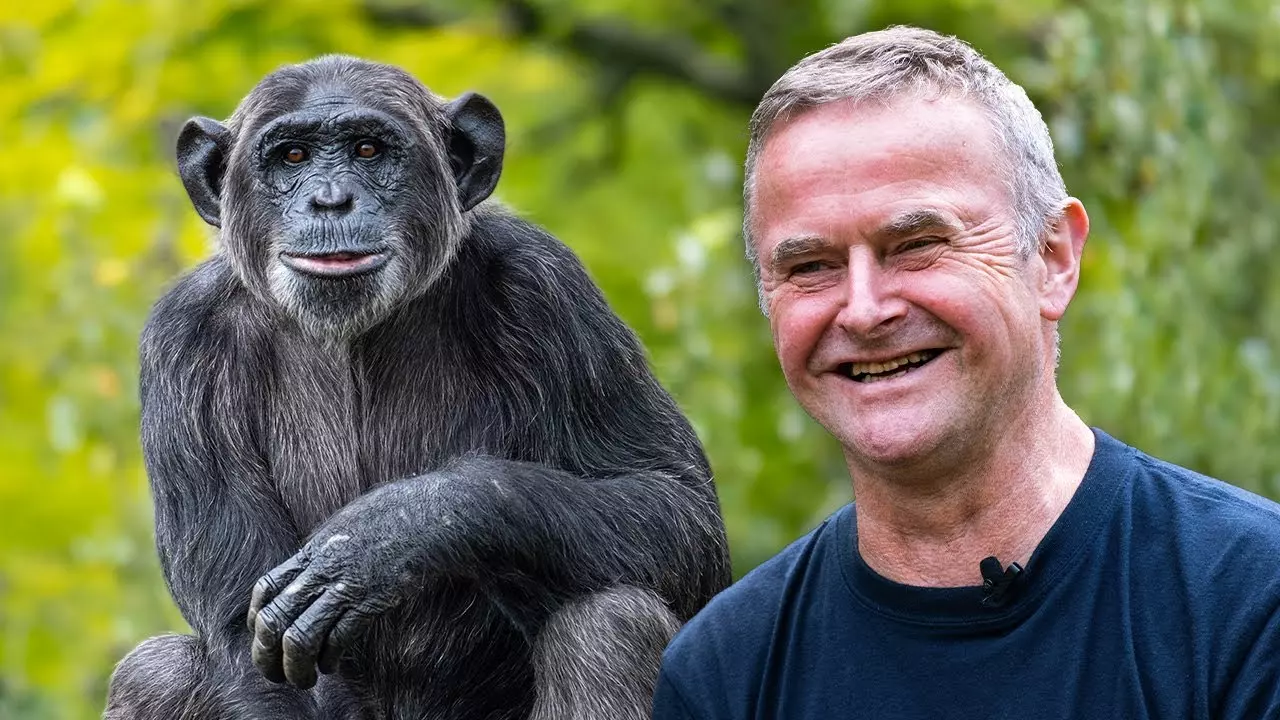
Angie and Phil share their volunteer experience
Join Phil and Angie as they explore what it means to be a volunteer at Chimp Eden. From learning the ins and outs of chimp behaviour and rehabilitation to experiencing the South African classics, including braais and safaris, enjoy a window into life at Chimp Eden!
Gallery
News & Stories

Health Check Time!
UPDATE | Apr 2025
This week the chimps received their regular veterinary health checks, and we’re thrilled to report that every single one of them passed with flying colours. These health checks are a vital part of making sure the chimpanzees stay happy, healthy, and thriving in their environment.

Fabulous First Volunteer Group Finish at Chimp Eden!
UPDATE | Mar 2025
Our very first volunteer group wrapped up their time at Chimp Eden today, and what an incredible two weeks it has been! From crafting hammocks and spreading food in the enclosures to observing the chimps and bonding with fellow volunteers over sundowners and braais, this trail-blazing group have set the bar high for future volunteers, and we can't wait to see what comes next for this exciting new project!

Happy 19th Birthday, Chimp Eden!
UPDATE | Mar 2025
Today, we celebrate 19 years since Dr. Jane Goodall officially opened Chimp Eden, providing a safe home for rescued chimpanzees. To commemorate the occasion, the team and volunteers enriched the chimps' environment with painted sheets and cosy blankets. Amari enjoyed swinging and tearing up her blanket, while Tony playfully tossed a sheet over himself.
Reviews
I've always wanted to have a chance working close to chimpanzees. That is why I truly appreciate every minute spent at Chimp Eden with the amazing keepers, guides, our coordinator and other staff, as the whole experience exceeded my expectations. I've learned a lot, felt very welcome and would definitely recommend!
I had an amazing experience with The Great Projects at the Jane Goodall Institute. The organization was excellent, the people were incredibly warm and welcoming, and observing the behaviour of the chimps was truly fascinating. The delicious food and the overall atmosphere made it an unforgettable trip—I would do it again in a heartbeat!
What's Included
- Accommodation
- Airport transfers
- Three meals per day
- Kruger National Park game drive
- A conservation donation
- Tea, coffee and drinking water
What's Not Included
- All flights
- Vaccinations and medical tests (which are required)
- Visas























